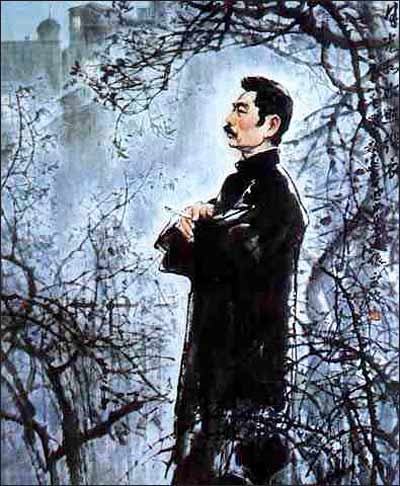| Tools: Save | Print | E-mail | Most Read |
| Literature |
| Adjust font size: |
The Book of Songs, China's first anthology of poems and earliest literary achievement, was compiled in the 6th century BC. Literature of the long succession of dynasties that followed includes pre-Qin prose in a simple style, magnificent Han Dynasty fu (rhymed prose), and the yuefu (folk songs) of the late Han. The Tang Dynasty alone can be credited with hundreds of poets, including Li Bai, Du Fu and Bai Juyi, who left more than 50,000 enduring poems. The Song Dynasty was known for its ci (lyrics) and the Yuan Dynasty for zaju (poetic drama set to music). The Ming and Qing dynasties saw the production of four masterpieces of the novel: Three Kingdoms, Outlaws of the Marsh, Journey to the West and A Dream of Red Mansions. These classics have been celebrated for centuries for their rich historical and cultural connotations and unique styles. The development of modern Chinese literature has seen two golden ages: from the 1920s to the 1930s and from the 1980s to the 1990s. The first heyday, starting in the New Culture Movement, showed strong opposition to imperialism and feudalism. Progressive writers, symbolized by Lu Xun, pioneered China's modern literature; Lu Xun, Shen Congwen, Ba Jin, Mao Dun, Lao She and Zhang Ailing have been regarded as the great masters of Chinese literature ever since.
Lu Xun The emergence in the 1980s and 1990s of a number of world-influenced writers and works reflects the achievements and richness of China's late 20th-century literature. Writers showed greater maturity in the use of contemporary language to express the lives and aesthetic experiences of modern Chinese people. Generally speaking, the artistry of thought and literary expression achieved by contemporary novelists has surpassed that of the previous generation. In recent years, China's literature has entered the "She Century." Woman writers of all ages -- from those born in 1930s to those still in their twenties -- play an active role in the literary world and their output is high both in terms of quality and quantity.Especially noteworthy are the works of women born post-1960s whose characters differ greatly in appearance and values from those of classical novels; their works have created a unique cultural phenomenon in modern society. Like elsewhere, China has seen the rapid emergence and flourishing of Internet literature. Since the setting up in 1995 of "Olive Tree," the first Chinese literary website, a score or more of similar sites has sprung up. As a new literary medium, the emergence of Internet literature has to a degree changed the overall make-up of Chinese literature. China has dozens of literary awards, the most prestigious of which are the Mao Dun Literary Award, the Lu Xun Literary Award and the annual Zhonghua Literary Figure of the Year. The Chinese Female Literary Awards, held every five years, is a major national award scheme covering works by women in the fields of novel, prose, poetry, documentary writing, female literary theory and translation. |
| Tools: Save | Print | E-mail | Most Read |
 |
| Related Stories |
